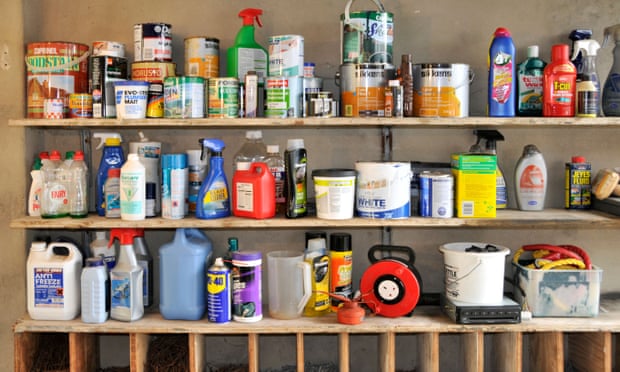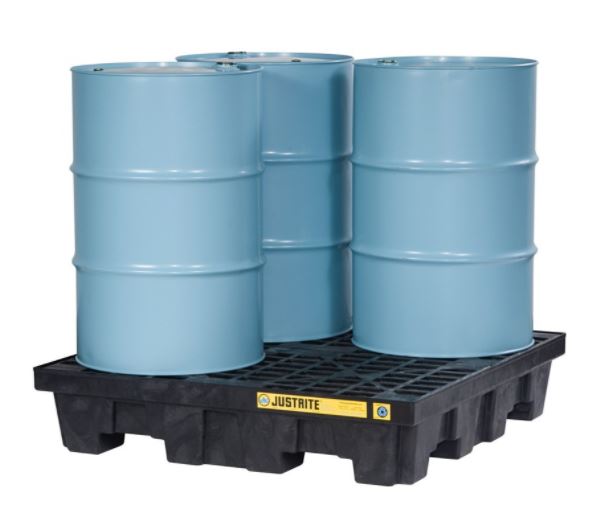Having now entered the fourth quarter of 2020, this is a good time to start thinking about preparing for your facility annual reports due in the upcoming first quarter of 2021. If your facility is in New York City (NYC) and is subject to Right-to-Know (RTK) reporting requirements, one such report to get started on now is the annual RTK filing due to the NYC Department of Environmental Protection (DEP) by March 1st.
The NYC DEP requires businesses that store hazardous substances to report their quantities on hand annually. The information filed with the DEP is additionally provided to the NYC Fire Department and the New York State Emergency Response Commission to aid first responders in the event of an emergency.

In preparation for your annual RTK reporting:
Now is a good time to assess if your paperwork is in order for the upcoming filing, as well as your overall facility best management practices and compliance with hazardous substance handling requirements. It is important to consider the following:
- You should understand the requirements for RTK filing and facility compliance. Recognize that you could receive a violation if you haven’t filed at all or on time and are required to do so, or if your facility is otherwise not in compliance. The DEP Bureau of Police and Security Division of Emergency Response and Technical Assessment (DERTA), or other regulatory agency personnel, such as field staff from OSHA, can inspect your facility at any time for compliance.
- Remember that if you are required to file, to not only file by the deadline, but to also pay the required fees on time, or you may face a violation and/or fine. Filing without payment is considered late or not filing. First time violations can result in fines up to $2,500. It should be noted that DERTA issued 1,226 violations between 2018 and 2019, most of which were related to failure to file Facility Inventory Forms, according to the 2019 Annual Report for Hazardous Materials Management in New York City issued by the NYC DEP.1
- Evaluate your facility’s overall chemical inventory. Chemicals that are not used often or have been sitting unused for a long time should be phased out or properly disposed of. Excess chemicals, especially those that are not in regular sight or maintained, could result in accidents and releases that could be costly.
- Keep in mind that the amount of chemicals at your facility is directly linked to the fee you will owe on the annual RTK filing with the DEP. The more chemicals you keep, the more you pay.
- If your facility uses any chemicals that contain an Extremely Hazardous Substance (EHS), your facility may be required to have and file a Risk Management Plan (RMP), depending on the amount stored. If a less hazardous chemical can be substituted or that chemical is not needed for facility operations, you should consider phasing out its use or to properly dispose of it. It should be noted that there are 354 registered RMP facilities operating within New York City according to the 2019 Annual Report for Hazardous Materials Management. 1
- You must keep Safety Data Sheets (SDSs) (formerly called Material Safety Data Sheets or MSDSs) for your facility current and have them on hand for all of the hazardous substances present. You need to provide copies of your current SDSs to the NYC DEP with your Annual Right to Know Filing. OSHA rules also require that you have your SDSs in a readily available format in a known location in case of an emergency (such as in an organized binder).
- All SDSs must follow the Hazard Communication Standard (HCS) (29 CFR 1910.1200(g)) with a consistent 16 section format for OSHA compliance. Chemical manufacturers are required to provide them in this format to users in accordance with OSHA federal regulations that govern the NYC region.
- Remember that you should keep outdated MSDS/SDS for 30 years when you replace your old sheets with new ones, in accord with OSHA requirements.
- All chemical/petroleum storage tanks at the facility should be labeled as per NYSDEC/local regulations, and all chemical containers, otherwise, should be labeled in accord with the Globally Harmonized System of Classification and Labeling of Chemicals (GHS) as per OSHA requirements for safety reasons and to avoid associated violations.
- All compressed gas cylinders should be both properly labeled and stored in accordance with OSHA/local requirements.

Questions?
If you have any questions regarding your chemical inventory, NYC DEP compliance, or RTK Tier II filing, please refer to Walden’s Right to Know Webpage and contact Walden Environmental Engineering at 516-624-7200.
1 https://www1.nyc.gov/assets/dep/downloads/pdf/about/community-right-to-know/dep-hazmat-annual-report-2019.pdf
